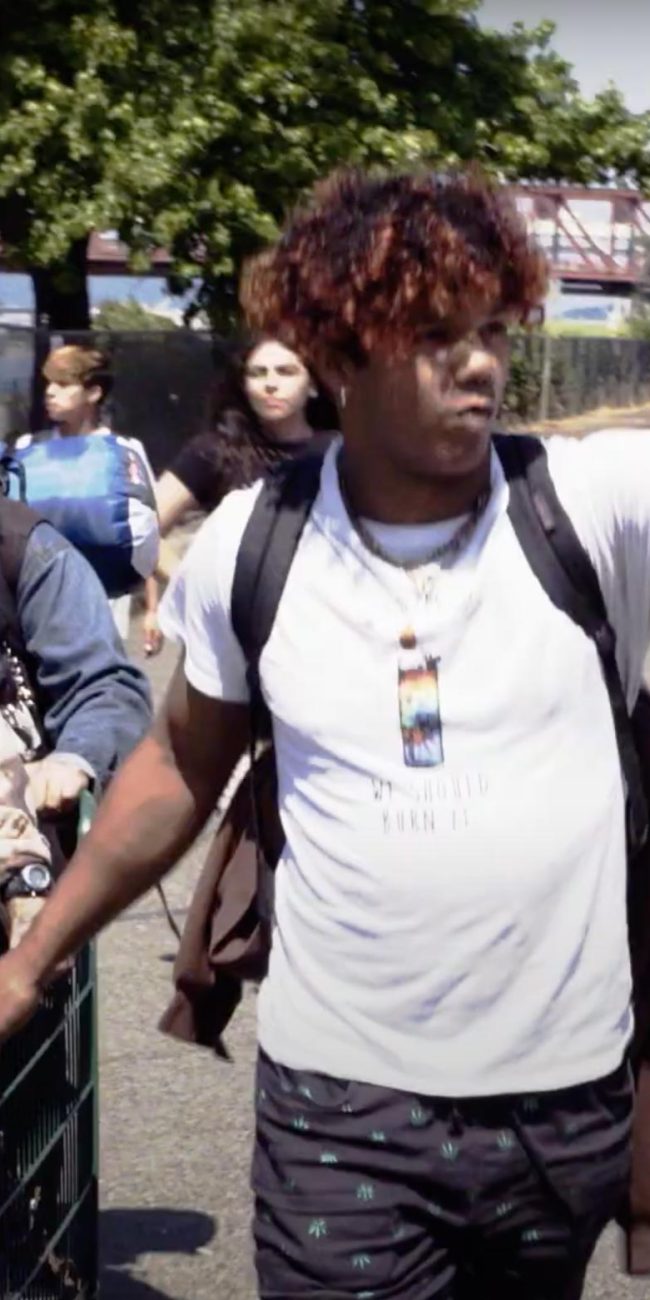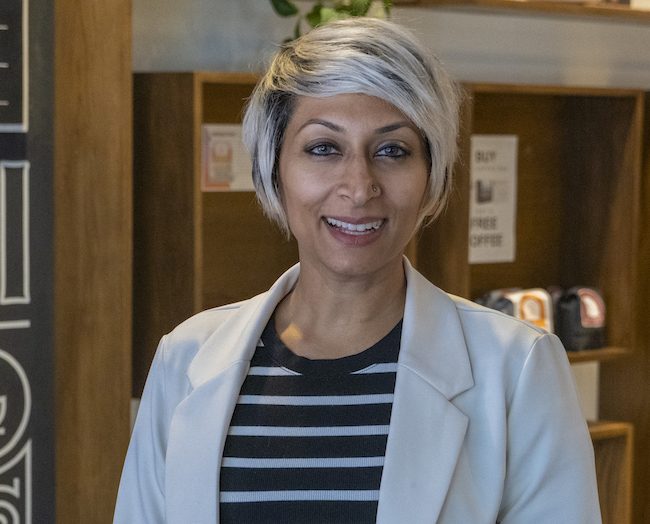A Conversation with Morgan Waru & Josephine Stewart-Te Whiu (WE WERE DANGEROUS)
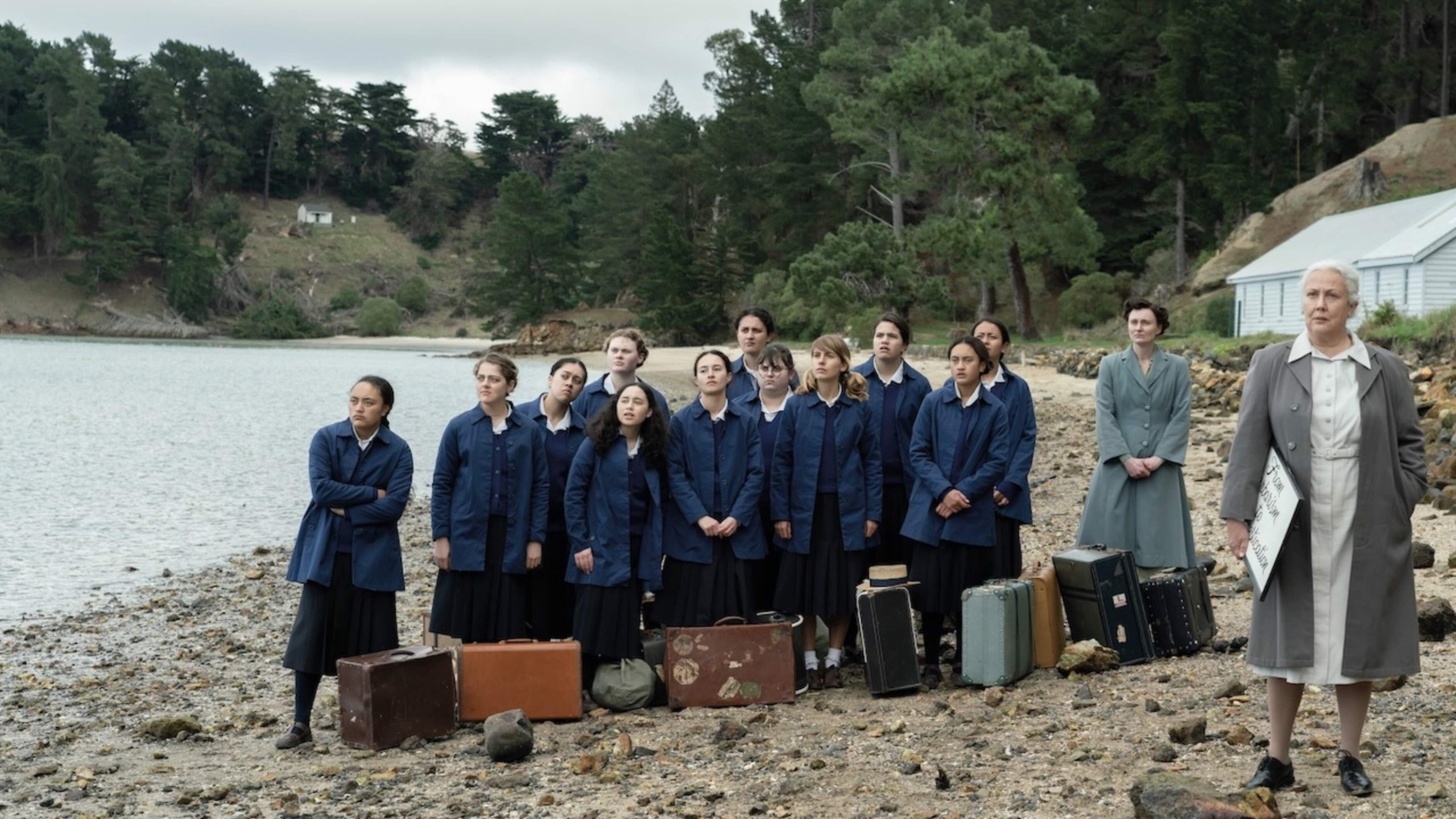
In the halcyon past of 1954, from the bucolic landscapes of New Zealand, We Were Dangerous opens with the daring escape bid of two Maori girls – Nellie (Erana James) and Daisy (Manaia Hall) – from a school catering to wayward souls. Their flight foiled, the girls must join the rest of their classmates as their institution is exiled to an island, a secluded haven from prying eyes, and far enough to keep the undesirables away from proper society. Enter Lou (Nathalie Morris) — blonde, white, and queer — sparking an unlikely kinship among disparate spirits bound by resilience in the shadow of a stern matron’s watchful gaze (Rima Te Wiata) and desire to “Christinize, civilize, and assimilate.”
It’s sobering to reflect on the countless individuals who have been labeled as ‘other’ or ‘undesirable’ over time, leading to inhumane treatment. Often, distressing circumstances completely out of the vicim’s control have been used to rationalize imprisonment or mandatory reformation. We Were Dangerous delves into a group of girls labeled as irredeemable, pushed to conform to societal norms as respectable women. Only a few are brave enough to stand against a repressive and outdated system, refusing to lose their true selves.
Directed by Josephine Stewart-Te Whiu, from a script by Maddie Dai, effortlessly dances back and forth from comedy to drama, anchored by three exceptional performances as the lead incorrigibles. This story is dense with detail such that it is easy to lose yourself into the daily lives of these girls. Honestly, I think there is a long form series here for Brit box or Acorn, I could watch the struggles and successes of these Kiwi girls for hours upon hours. I had a chance to sit down with the creative team, including producer Morgan Waru during South by Southwest.
Hammer to Nail: I’d love to just start by getting to know a little bit about how the project came together, where the idea came from, and how the three of you teamed up.
Morgan Waru: Sure. That’s probably a question for me. I’m one of the producers on the film. We were lucky enough to come across Maddie and the script at Piki Films, and we’re already working on something in development with Josephine and it came together quite organically and easily, which is not something that’s said for a lot of feature films.
Josephine Stewart-Te Whiu: We were in lockdown.
MW: We were. It was COVID times. And so, got this production financed and we were into production before we knew it. It was great.
HtN: Were you shooting during lockdown?
MW: Not lockdown, but during COVID.
HtN: Yeah. So very carefully. Small crew?
MW: Small crew, masked up.
JSTW: I could only drive in the car with one approved person. I couldn’t do anything outside of shoot.
MD : We couldn’t go near her.
HtN: Was it an actual island you were shooting on?
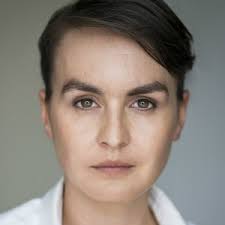
Filmmaker Josephine Stewart-Te Whiu
JSTW: Some of it. And some of it’s cheated on a peninsula, which is half an hour drive from the island.
HtN: Fair. Is this based on a true incident or did they do things like this of moving people away into small groups?
MD: It’s like a fictional story, but there are a lot of true historical elements. I mean, the booklet, The Fertility of the Unfit, which was a sort of call to arms for eugenics to become mainstream in New Zealand, was written by a New Zealand politician in [1903]. And then the Mazengarb Report, which was sort of this moment of great moral hysteria about the sexualization of women was a real thing that happened in 1953 and it was sent out to every household in New Zealand. And then I guess the removal of people from society and anything that felt like fringe or dangerous or that didn’t fit with the hegemonic mainstream ideal of what it meant to be a normal New Zealander was definitely a trend. And it did seem to particularly happen on islands. I mean, there are so many islands in New Zealand.
JSTW: In fact, the island that we shot on had a history with girls school. Girls schools would go there in the summertime like our fictional school in the film to go for a holiday, but they would help build walls and do labor there. And my dad actually, his whole childhood, he was in a state care home, a boy’s home in New Zealand, so very real.
MD: Yeah, so definitely I had a great-grandfather or great-great-grandfather who was imprisoned on an island in the middle of the harbor where I grew up- in the city where I grew up. But there were people who are being quarantined — lepers, prisoners, people who are considered suspicious — during both world wars were put there. So it’s a classic way to handle things.
HtN: Yeah, it’s not one particular type of people. It’s anybody that they want to remove. So you get all the outsiders together and they’re all there for different reasons, but then they find the identity together as outsiders. I really loved the way the three girls came together and how we got their stories. I love the voiceover and I love the way that we didn’t get it all [three background stories] at once and it was spread out through the film. Was that early in the script or did that come through editing —
MD: Early on in the script, we were always drip fed information that sort of painted a picture of the story of these girls. And I mean, I guess the idea that actually all four of the ones we look at, the matron and the three girls come from really varied backgrounds, but via a perceived flaw or entrenched situation, they end up there. The narration, I mean, definitely changed over the course of it.
JSTW: Quite dramatically.
MD: And it being the matron who was the narrator was a late move, but one I think is really smart. I mean, it wasn’t my idea. So I feel capable of saying that because I think that she is a character that we all felt really compelled by constantly throughout it. She is sort of the great tragedy of the script. She is a product of these institutions herself.
HTN: It strangely humanized her, even though you saw she was doing terrible things. She was talking about the girls in very negative ways, but the fact that she cared enough to know their story…
JSTW: Exactly.
HtN: And did want to help them in a way that…
JSTW: Yeah, well she was them once upon a time, which you learn later in the film.
HtN: Yeah, that’s great.
JSTW: And I think it was really important for me that the audiences felt a compassion for her. Otherwise, it becomes really binary and black and white. And I didn’t want it to be that. She had to be multidimensional and we had to have conflicting feelings over her because Maddie always talked about when you wrote the script, the tragedy of her, and there was a real risk with that character that she could become quite sort of archetypal evil old woman.
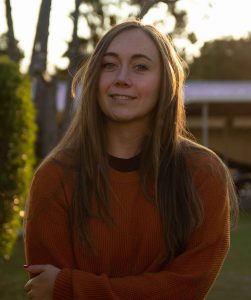
Filmmaker Morgan Waru
HtN: She was funny, and it’s such a way to diffuse those kind of feelings. Somebody’s compelling if they’re amusing to listen to.
JSTW: That’s right. That’s right. And it had to come from her character. So she couldn’t be aware she was funny.
MW:: Otherwise it’s not funny anymore.
JSTW: She can’t play for the gags. She has to go really serious. Yeah. It’s a fine line. You’re constantly trying to balance and get it right.
HtN: You have a lot of characters on screen all at the same time, so that becomes complicated in terms of playing with the ebbs and flows of that, can you talk a little bit about working with the actors, especially in the large group scenes and how those- I love the chant scene that they were doing together. It’s such a beautiful moment of the film that we just took the time for that and then to go directly from that to the scene of learning how to have ‘proper’ conversation…
JSTW: Yeah, the polar opposites.
HtN: Yeah, it was just really great.
JSTW: Thanks. Yeah, the game scene, the chant scene, it wasn’t in the script, and I probably gave my First AD a heart attack because I saw the girls, we were shooting the boat stuff, you know the boat where they’re traveling to the island and they were all playing this game, which is a game that you play in schools in New Zealand growing up. And someone videoed it and showed it to me and like, “Look at what the girls were doing while you weren’t-” because I was on the camera boat. I wasn’t on the hero boat, and I was like, “oh my God, I have to put it in the film. This has to be in the film.” And I was a bit naughty. I told my First AD the day that we were going to do it, I was like, “We are not going to do this scene today. First, we’re going to do this one that I’ve made up in my head and you just have to trust me because we’re going to do it.” And he looked sick, and I’m really glad we shot it in maybe 15 minutes if that.
HtN: Oh, that’s so great. Well, it has that feel of-
JSTW: Yeah, the DOP grabbed the camera, she held it- went handheld, and luckily we had two really great editors who worked on the film and they did a really beautiful job of syncing it together, making it work.
HtN: Obviously you have the bookend of the film of them trying to escape at the start and then them finally escaping. I know we don’t have a second part, but those girls, we live with them and I want to know more about what they do after that. I guess I’m just curious, where can they go at that time together, back at that time in New Zealand? What could they do? What is possible for them?
JSTW: Realistically?
HtN: Yeah.
JSTW: It would’ve been hard in all honesty in the real world. Within the film world, I like to imagine that immediately afterwards, they would’ve gone back to Nelly’s house and Nelly’s family for a very safe space for all of them. A lot of kids growing up in that family, their family would’ve taken them in and hidden them, essentially.
MW: It was quite a deliberate choice that you made though, that that was the space that we left them. We don’t actually, as the audience, know, and you kind of end up projecting onto them what you hope for them.
JSTW: That’s right.
HtN: Stopping there gives us the ability to cheer for them.
JSTW: To imagine-
HtN: To imagine it’s a victory.
MW: And at a point where you leave unwritten, I guess the possibilities do feel endless and unknowable. I mean, yeah, but women of the age in New Zealand, I mean, I’m sure would’ve done, there would’ve been such varied experiences while still taking a long time to shake off the restrict- my mom was born around the time of the film and she talks all the time about how just sort of, you had a baby as a teenager? Taken away. You were queer? Don’t talk about it. Just that sort of, that hold on people.
JSTW: My mom moved to Australia when she was 15, quite normal back in the day. She’ll be a similar age to your mom growing up in that time, and that was it. You either got a job and got married or you ran, and my mom was a runner and survived. I think that’s the other thing we underestimate young women so much and what they’re capable of and what their strengths are that this kind of celebrates that ending trust in them. They know who they are and they know what they want and they can get there. They will get there.
HtN: The scene where the matron tells her, basically, you’re lucky because you could just pretend, you could just fit in, and it was awful. But I also got where she was coming from in a certain way.
JSTW: Yeah, it’s such great line. That’s a Maddie genius moment.
HtN: Because she’s not like the other girls there.
JSTW: She’s beautiful, she’s blonde, she’s passing as straight. She has everything. It could be so easy for her if she just pretends.
HtN: Right. So easy. Also, I’m thinking about how nowadays we’re looking back at the schools that were set up in America and Canada for the indigenous people and how we tried to ‘colonize’ them, and I’m curious how that movement is going in New Zealand? If they were to look back at this kind of a time, Is there some redressing going on?
JSTW: There is currently, yeah, there’s big lawsuits happening as we speak, and they’re ongoing. My dad’s been part of them. Like I said, he grew up in a boy’s home. He has been paid out. My dad’s quite poor. He doesn’t have a lot of money. He’s very working class, and he got paid out $3,000, which I was furious about because I feel like, so your whole childhood is worth that amount of money? And that’s kind of what’s happening. So there are lawyers that are giving their time for free to try and get some sort of redemption, I guess, for these people that lost their youth to the system. But it is ongoing and it hasn’t been resolved, and it’s quite, those people are still alive and they exist in our community, so it can be a bit of a sensitive subject, which was, yeah, I’ll be honest, tricky at times with this film because I’m trying to balance this beautiful joy and humor and these delicious characters who are allowed to have these moments of pure joy in life and find joy in each other, and then you’ve got this other stuff that’s happening.
MW: That was what was quite profound actually, about part of the research and development process was connecting with people who had been through the state care systems and they had actually, they kind of went, “Yeah, it was really dark, but actually my memories of that time or the strongest thing that came out of my life was my friendships there and the girlfriends that I had and the laughs that we had in the middle of the night.” And that was just really profound and beautiful and resonant and something that I think is portrayed in a slightly reductive way sometimes. So that was so lovely for Jose to have the space in this film to portray that.
—
We Were Dangerous world premiered at the 2024 South By Southwest Film Festival. Director Stewart-Te Whiu received a Special Jury Award for Filmmaking. According to the Narrative Feature Jury, “We Were Dangerous, a spirited and affecting tale of female rebellion at a 1950s New Zealand reform institution for so-called delinquent girls, heralds the arrival of an exciting new filmmaking talent in Josephine Stewart-Te Whiu. Her feature film directorial debut confronts a sobering and all-too-relevant history with a sly sense of absurdity and the camaraderie of its three young leads, played by Erana James, Nathalie Morris and Manaia Hall.”
– Bears Rebecca Fonté (@BearsFonte)








